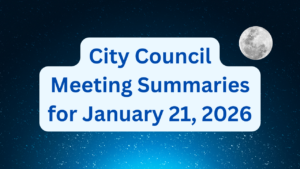
I’ve recently started incorporating the use of Artificial Intelligence (AI) into my blog as a way to share more content that both informs and entertains. My workflow has been to record myself talking about a topic, converting it into a transcript, and then using AI to use that transcript to help me create a clear and concise message while also preserving my original voice. I proofread the final output and make sure all of the information is accurate and as I provided it. It’s been a great tool. My use case is a low-stakes endeavor, and not worth much regulatory thought. There’s a bigger picture to consider with AI.
Speak Up Now Since AI Will Touch Our Lives in Every Conceivable Way
Artificial Intelligence (AI) has rapidly advanced in recent years, impacting various aspects of our lives, from healthcare and transportation to finance and entertainment. Recognizing the significance of AI and its potential implications, the United States government has initiated a public comment period to gather input and perspectives from the general public on the regulation of AI. This article aims to inform you about this crucial opportunity to have your voice heard and contribute to shaping the future of AI in the country.
The National Telecommunications and Information Administration (NTIA): The NTIA, a division of the U.S. Department of Commerce, is responsible for advising the government on telecommunications and information policies. In its commitment to fostering innovation while addressing potential concerns, the NTIA has opened a public comment period on the regulation of AI.
Why Public Comment Matters
Public comment periods are vital in ensuring that decisions made by government agencies consider a wide range of viewpoints and potential impacts. Your participation allows you to express your opinions, concerns, and suggestions regarding AI, enabling policymakers to make informed decisions that reflect the interests and values of the public.
How to Submit Your Comment
To take part in the public comment period, you can visit the NTIA’s website at [https://ntia.gov/issues/artificial-intelligence/request-for-comments]. The website provides detailed instructions on how to submit your comment electronically. Make sure to familiarize yourself with the guidelines to ensure your comment is properly considered.
Deadline and Public Disclosure
The deadline for submitting public comments is June 12, 2023. It’s essential to meet this deadline to ensure that your input is included in the decision-making process. Please note that the submitted comments, including your name and any personal information provided, will be made public. Transparency is key to this process, allowing citizens to review and respond to various perspectives.
Comments Made Public on Regulations.gov: To promote transparency and enable wider access, all public comments will be made available on the Regulations.gov website [https://www.regulations.gov/]. This platform serves as a centralized repository for public comments on various government regulations, allowing interested parties to review and analyze the contributions of individuals and organizations alike.
Your opinion matters.
Every individual’s opinion counts during this public comment period. Regardless of your expertise or background, your insights can contribute to a more comprehensive understanding of AI’s impact on society and inform effective regulations. Whether you have experienced the benefits or concerns related to AI, your unique perspective can shed light on potential risks, opportunities, and necessary safeguards.
Don’t miss the deadline!
As AI continues to reshape our world, it is crucial that the regulatory framework reflects the collective voices of the people it affects. The public comment period initiated by the NTIA provides a significant opportunity for you to have your say and influence the future of AI in the United States. Visit the NTIA’s website, review the guidelines, and submit your comment before the deadline of June 12, 2023. Your input matters, and together, we can shape a future that harnesses the potential of AI while safeguarding our values and well-being.







